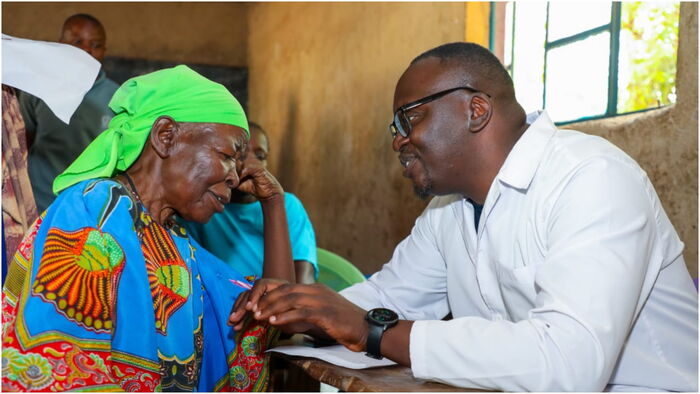The Ministry of Health in Kenya has made a big announcement that will affect many patients who usually travel abroad for medical treatment. On Sunday, Health Cabinet Secretary Aden Duale confirmed that the Social Health Authority (SHA) Overseas Package has been paused for 30 days.
The reason for this pause is to allow new policies and system upgrades to take effect. According to the ministry, the goal is to encourage more Kenyans to seek treatment locally instead of traveling overseas.
From now on, SHA will only pay for medical treatment outside Kenya if that treatment is not available in the country. This is a major change that will impact thousands of patients.
Duale explained that many procedures that people used to travel abroad for can now be done in Kenya. These include PET scans, advanced imaging, kidney transplants, open-heart surgeries, and treatment for joint and spinal injuries.
He said that Kenya’s hospitals now have the facilities and doctors to carry out these treatments successfully. This means fewer Kenyans will need to travel abroad for medical care.
Another important change is that only overseas hospitals formally contracted by SHA will qualify for coverage. These hospitals must also be accredited in their own country and recognized in Kenya.
To be part of the program, foreign hospitals will need to sign a Memorandum of Understanding (MoU) with a Kenyan health facility that is already empanelled and contracted by SHA.
The annual cap for the SHA Overseas Package will remain at Ksh500,000 per patient. This means patients cannot claim more than this amount for overseas treatment in one year.
Duale explained:
“The Social Health Authority (SHA) Overseas Treatment Benefit Package under the Social Health Insurance Act allows for treatment outside Kenya at a set annual rate of Ksh500,000 for services not available locally. SHA is aligning with the law, has started contracting, and is implementing a new system to improve coordination among all stakeholders.”
The new policy also introduces a stricter process for overseas treatment approval. Patients and hospitals will have to follow four key steps:
First, the overseas hospital must request pre-authorisation before the patient travels. This ensures the treatment is covered.
Second, the hospital must notify SHA upon admission and discharge of the patient.
Third, hospitals will be required to submit claims online for payment processing.
Finally, when the patient comes back to Kenya, they must receive follow-up care through a local linked facility.
This is a huge shift in how Kenya handles overseas healthcare support.
Earlier this year, on January 23, the ministry had already announced that the overseas benefits package was under urgent review. This was after many Kenyans complained about their experiences with SHA.
MOH Director General Patrick Amoth explained at the time:
“The indication initially was that we are supposed to review the tariff and benefits after two years, but because of the call from Kenyans regarding their experience with SHA, that will be done much sooner.”
He also added:
“The Cabinet Secretary and the Principal Secretary, State Department of Medical Services, have instituted measures to ensure that the benefit package tariffs advisory panel, which is envisioned in law, is in place.”
Amoth stressed that the government wants the package to meet its core objective, to cover every Kenyan fairly and effectively.
For many families, this announcement is a mixed message. On one hand, they welcome the government’s push to strengthen local healthcare. On the other, patients with conditions that require rare or highly specialized treatment abroad may feel anxious about the stricter rules.
The Ministry has assured Kenyans that the reforms will improve efficiency, transparency, and fairness in how overseas treatments are approved and funded.
This shake-up signals that Kenya is determined to invest in homegrown healthcare solutions, reduce medical tourism, and make better use of local hospitals and specialists.
For now, patients will have to wait 30 days to see the full effect of these changes. But one thing is clear, healthcare in Kenya is entering a new chapter.






